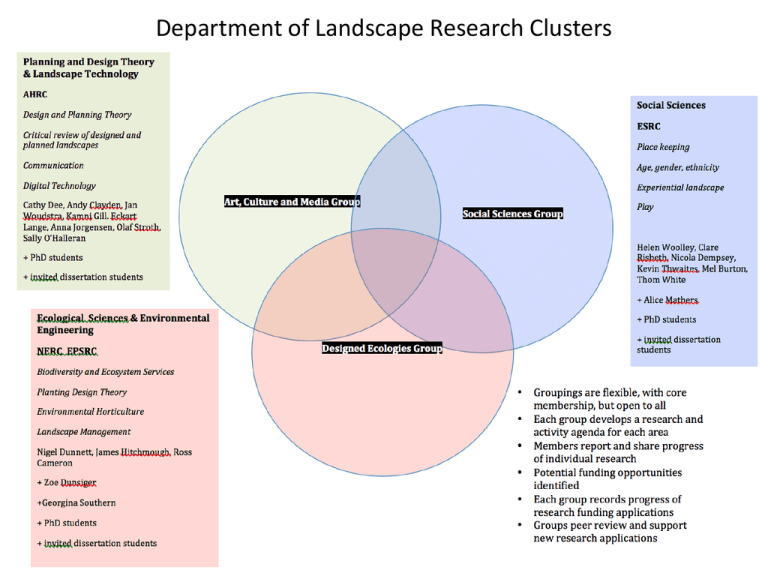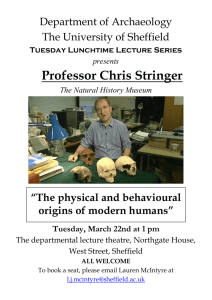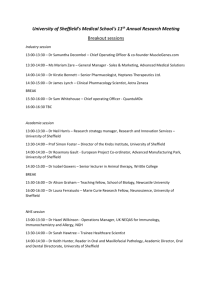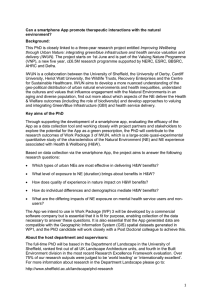Department of Landscape Research Clusters
advertisement

Department of Landscape Research Clusters Transitional Edges integrating socio-spatial urban morphology and human well-being Kevin Thwaites Alice Mathers Ian Simkins University of Sheffield Experiemics Ltd United Kingdom ‘In short, we are interested in the overlapping relationship between physical form and territorial control.’ (Habraken,1998,p.127) Socially Restorative Urbanism a theory and practice development agenda towards cross-disciplinary integration for urban sustainable living. A more explicit understanding of the human-environment relationship as mutually interdependent and mutually transforming at the heart of approaches to research, teaching and practice. Recognition of the interdependency of urban morphology and social, political and economic processes, to better inform integration of professional, topdown processes with community-led bottom-up processes in urban place making, management and adaptation. The primacy of transitional edges, as socio-spatial components of urban order, especially their key significance to the social life and vitality of the urban realm. Emphasis on the need for accessible and inclusive forms of communication capable of overcoming professional and community boundaries and discipline specific boundaries. Development of cross-disciplinary research, education and practice that can better integrate built environment disciplines with psychology and sociological principles. Development of new readings of the urban realm more closely related to territorial functioning and in particular the need for a better balance between professional intervention and occupant self-organisation. Reorientation of practice and policy to be more localised and context specific, emphasising the importance of longitudinal, time-sensitive partnership working. Money is spent on place creation and regeneration – but what happens after the designers have finished? Who maintains and manages for the long term? Who decides? Who owns? Who pays? Who cares? The place-keeping group conducts empirical research to examine management approaches to explore how the qualities and benefits of a place can be maintained and enhanced over the long term. Mel Burton & Dr Nicola Dempsey Dr Nicola Dempsey & Mel Burton Department of Landscape Clare Rishbeth Social dynamics of everyday urban places Migration and landscape experience Current research The Un-Sociable Bench, and other urban micro-territories of encounter and intimidation. AHRC Connected Communities programme. What controls are enforced? What role is played by strategically ‘un-comfortable’ design? Who has little option but to hang out in public space? Who is welcome? What stories of conviviality or conflict What intersections of identity: could be told by your local bench? class, race, gender, age are How does sitting outdoors have benefits for important? personal and community wellbeing? c.rishbeth@sheffield.ac.uk ©India Hobson • Grey to Green, Sheffield Sheffield Grey to Green Project (G2G) © The University of Sheffield 17/0 7/20 16 ©India Hobson Urban Meadows & Low-input perennial plantings



